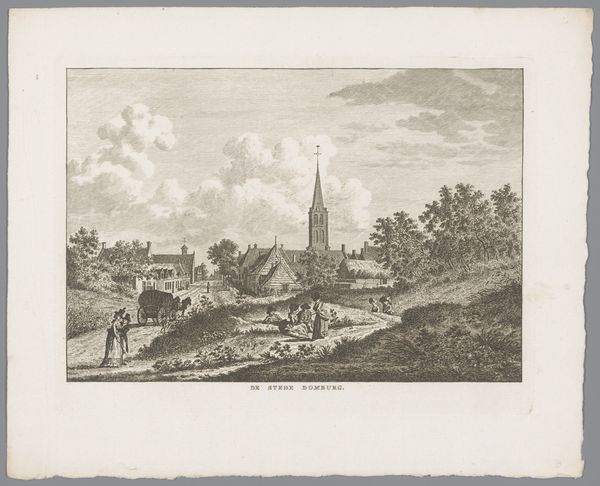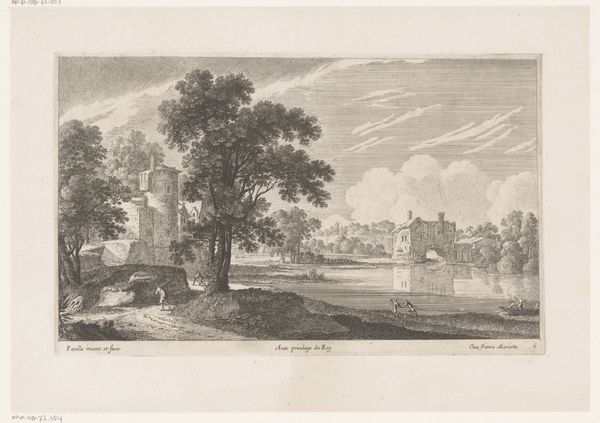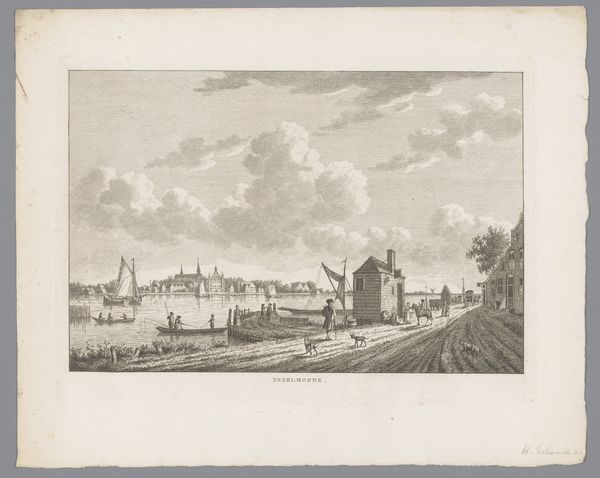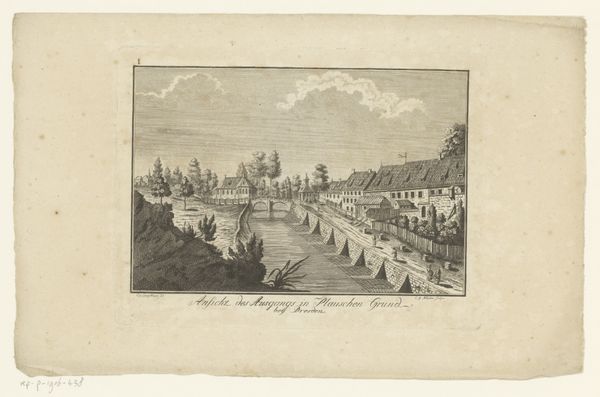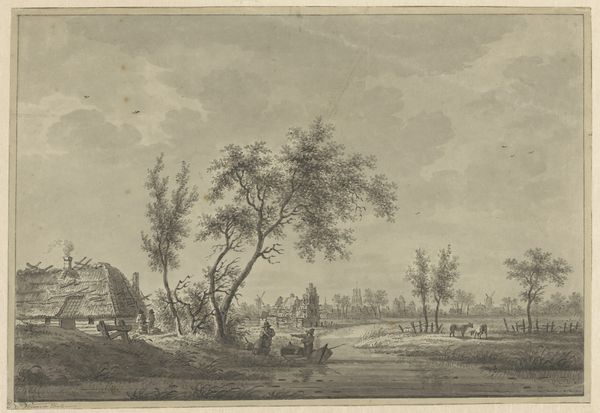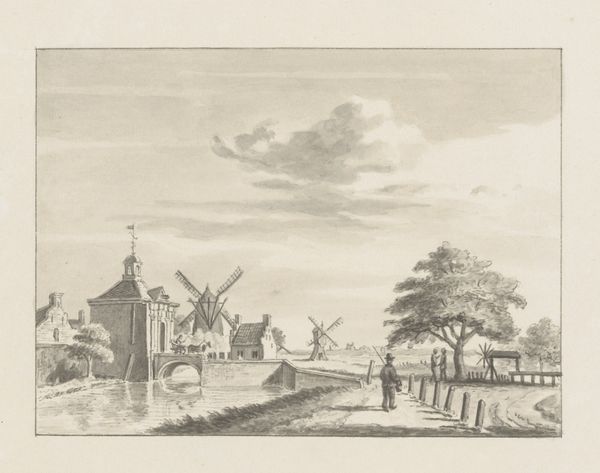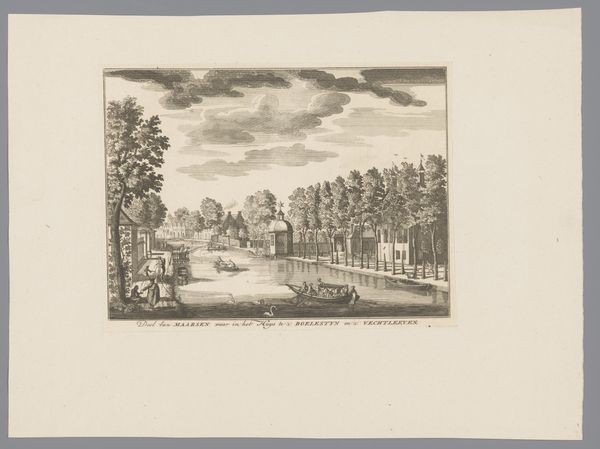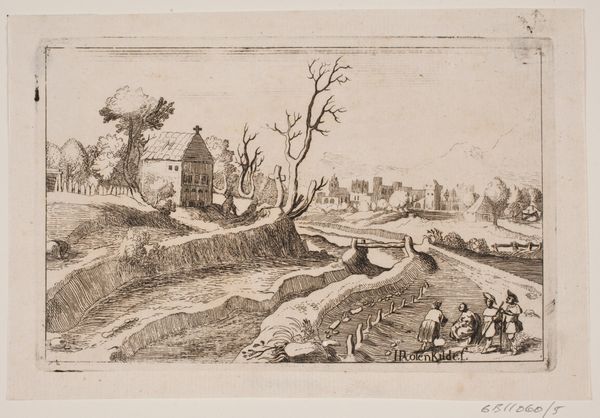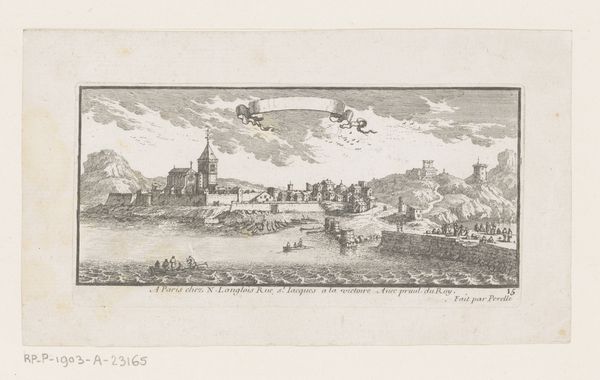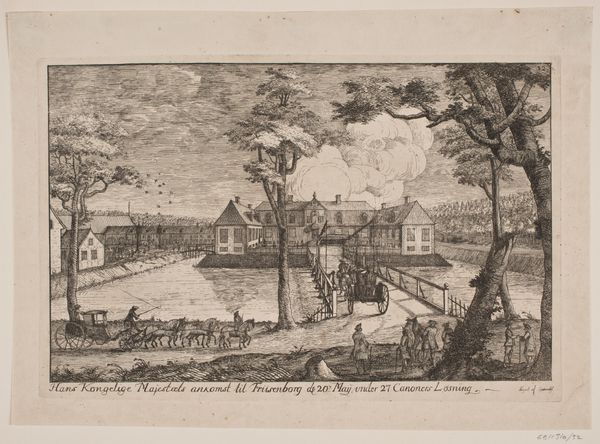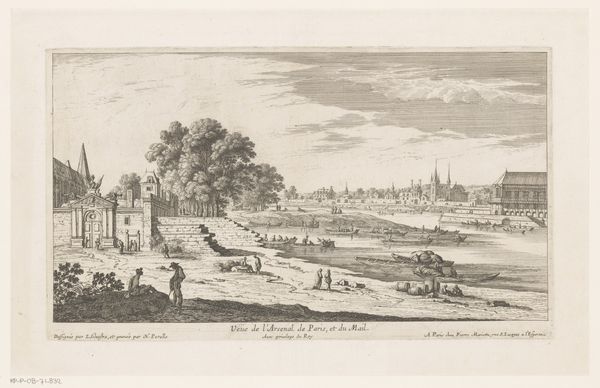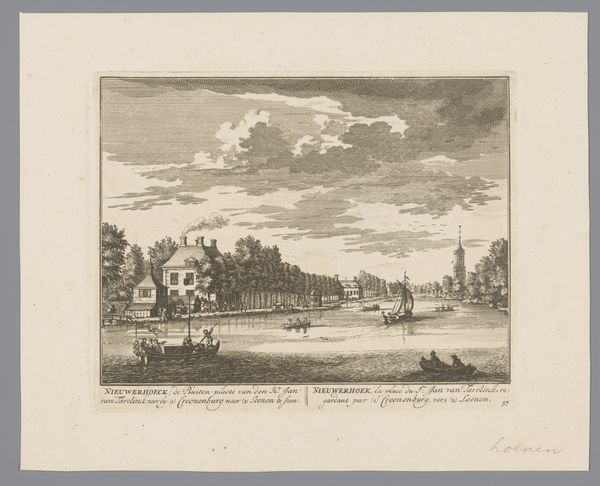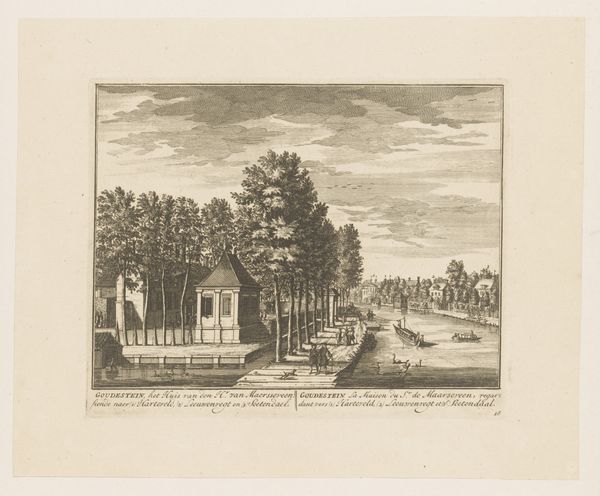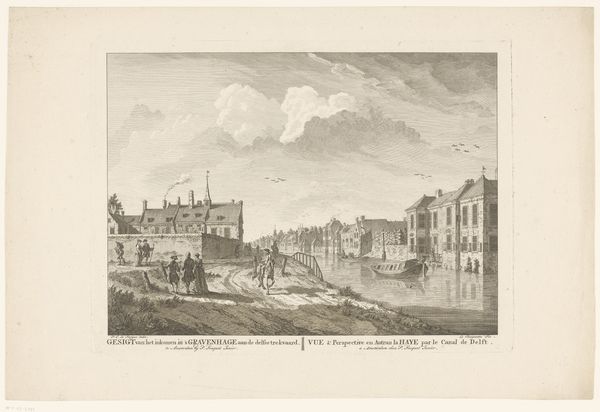
print, engraving
#
dutch-golden-age
# print
#
landscape
#
cityscape
#
engraving
Dimensions: height 140 mm, width 184 mm
Copyright: Rijks Museum: Open Domain
Jan Goeree created this print depicting the Rasphuismolen in Amsterdam. Though undated, we can place it in the late 17th or early 18th century based on his lifespan. What we see here isn't just a pretty landscape. It's a view of a workhouse. The “Rasphuis” was an institution where convicts were forced to rasp wood to produce dye. Think about this for a moment; Goeree is showing us a site of punishment and forced labor. The scene presents a paradox. We see the mill, a symbol of Dutch ingenuity and industry, but its operation relies on the exploitation of incarcerated individuals. The image invites us to consider the social structures and the treatment of the marginalized in Dutch society at that time. How did institutions shape the lives of individuals, and what role did art play in reflecting or challenging these realities? Understanding art requires a historian’s eye, exploring archival records and social histories to reveal the complex relationships between art, power, and society.
Comments
No comments
Be the first to comment and join the conversation on the ultimate creative platform.
